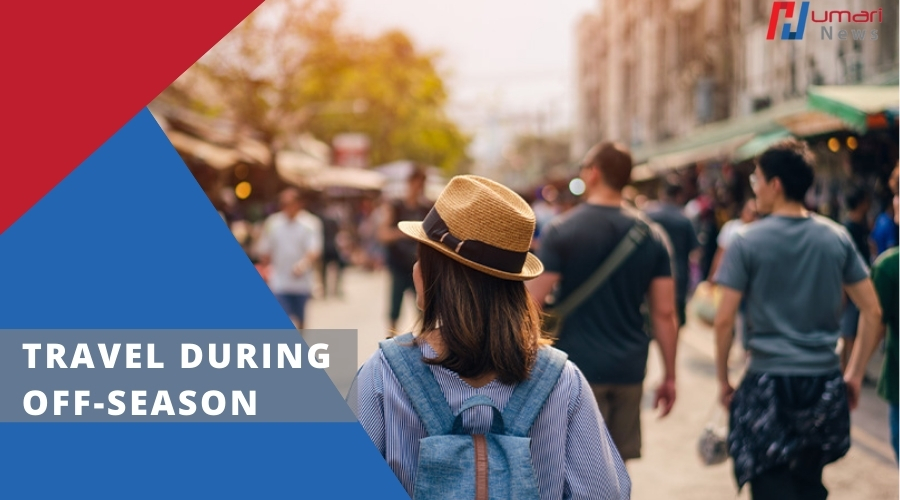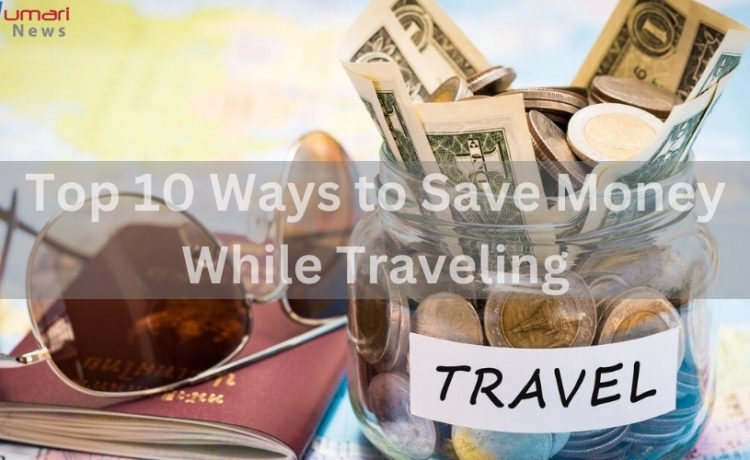Traveling can be a wonderful experience, but it can also be costly. That’s why many people are always looking for ways to save money while on the go. In this blog, we will explore the top 10 ways that can help you cut costs and make your travel experience more affordable.
From finding the best deals on flights and accommodations to saving money on food and transportation these tips will help you make the most of your travel budget.
1. Research Beforehand

Researching before you travel is crucial if you want to save money. Look for budget-friendly accommodations cheap transportation options and free or discounted activities at your destination. By planning ahead, you can avoid expensive tourist traps and find the best deals on everything from flights to meals.
2. Book Tickets in Advance
Travel tickets make up a large portion of your vacation budget, so save as much as you can at this stage. How? Book months in advance!
Once you’ve decided to travel, the first thing you should do is purchase your tickets. Book your flight and train tickets ahead of time to obtain the best rates.
Follow some of these methods to obtain better deals on flights:
- To save money, book both the departure and arrival tickets in one bundle.
- Try traveling and reserving tickets on weekdays, as weekend prices may be higher.
- Use websites that offer good deals rather than mainstream websites.
3. Opt for Hostels or Homestays
To save money on hotel prices, look for cheap hostels or homestays wherever available. Homestays may also provide complimentary home-cooked meals, allowing you to save money while eating healthily.
Check out package packages that include travel and hotel bookings; you can get a big discount.
4. Rent a Vehicle
If you have limited access to public transportation, consider renting a scooter, bike, or car.
Having your own rental vehicle allows you to go at any time. You may look for car rentals online and even book them in advance.
5. Avoid Shopping from Tourist Spots
Purchasing gifts or decorative items for friends, family, or your own home is essential while on vacation.
When shopping, avoid tourist attractions because the prices may be exorbitant. Instead, set aside a day to visit a local market for all your buying needs.
6. Stock up on Snacks
Food in airports and on airplanes is highly pricey. If you are traveling on a tight budget, stock up on filling snacks that you can eat while traveling.
Also, bring some ready-to-eat snacks with you, as these will come in handy if you are hungry at your hotel. This way, you won’t have to order every meal from a fancy restaurant.
7. Utilize Card Offers and Discounts
Credit cards, as well as debit cards, frequently offer savings that you should take advantage of when traveling on a tight budget. You can use your credit card to gain savings on airline tickets and hotel reservations.
Check to see if you have any cashback or dine-in savings while eating out. You can also use your debit card to gain entrance to airport lounges, where you can eat for free.
8. Travel during Off-season

During the peak season, everything is more expensive—activities, experiences, tickets, car rentals, public transportation at tourist destinations, etc.
Thus, if at all possible, travel during the off-season. You will also get the bonus of being able to enjoy in quiet and without the crowds by doing this.
9. Explore Local Markets
When visiting a tourist destination, be sure to check out the local hangouts and markets. Dining at places frequented by locals will help you become familiar with the food. Native goods will also be available in local marketplaces, usually for significantly less money.
You can save a lot of money and fully immerse yourself in the culture of the location you visit by doing this.
10. Bargain
Try to bargain as much as you can when it comes to hotels, shopping, car rentals, and public transportation. When you bargain, sellers or businesses at tourist destinations may lower their initial quote.
In order to determine whether you are paying more, it is preferable to have a general understanding of the cost of the goods and services.
Conclusion:
Investing in travel means investing in experiences. Traveling not only provides a vacation from your regular routine, but it also refreshes and rejuvenates your mind.
This does not imply that you must spend all of your savings every time you go on vacation. These strategies will help you travel wisely while keeping your savings intact.







